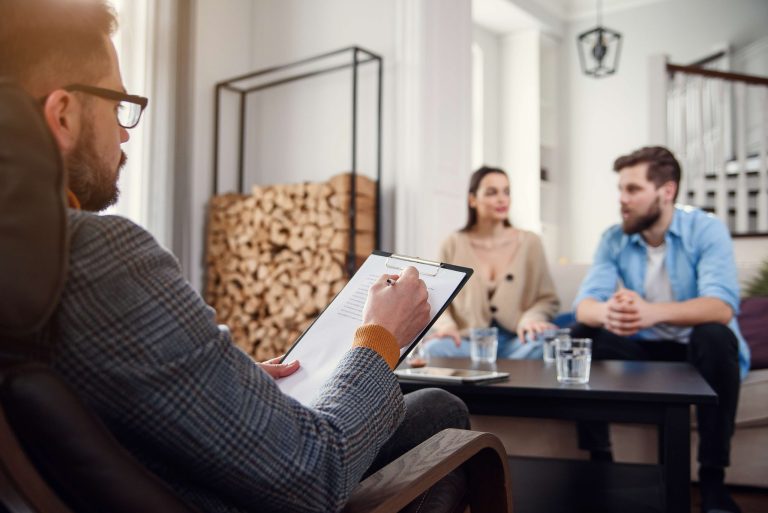Alcohol and Anxiety: Causes, Risks and Treatment
Abusing alcohol disrupts the brain’s chemistry and ability to communicate effectively with the rest of the body. The disruption of the brain’s pathways can impede the brain’s ability to regulate moods and behaviors. They effectively slow things down, helping you to relax and reduce your anxiety.
- Discuss these concerns with your doctor first to see if alcohol is safe for you.
- But people who have a phobia can experience phobia-related triggers that lead to a panic attack.
- Alcohol can lower blood sugar immediately after drinking it – but the effect may last for several hours too.
- Panic attack symptoms can also resemble symptoms of other serious health problems, such as a heart attack, so it’s important to get evaluated by your primary care provider if you aren’t sure what’s causing your symptoms.
- Symptoms of panic disorder often start in the late teens or early adulthood and affect more women than men.
How to Get Help With Alcohol Withdrawal Symptoms
- Alcohol can cause several long term health issues, in addition to some of the personal challenges that come from the disorder.
- Such alterations can allow therapists to calibrate the dose of exposure that optimizes efficacy for extinction of the target fear response while minimizing the risk for relapse to drinking.
- Interestingly, socially phobic women were less likely than women without social phobia to obtain an Alcoholics Anonymous sponsor, which may help explain the poor outcomes for TSF among this subgroup.
- Here, I’ll explore why alcohol can cause feelings of panic, and what you can do to reduce your risk of this happening.
These feelings can naturally increase overall feelings of anxiety in daily life. Many people have just one or two panic attacks in their lifetimes, and the problem goes away, perhaps when a https://scooterclub.by/nforum/viewforum.php?f=21&start=75 stressful situation ends. But if you’ve had recurrent, unexpected panic attacks and spent long periods in constant fear of another attack, you may have a condition called panic disorder.
Get advice that’s rooted in medical expertise:
Panic attacks have many variations, but symptoms usually peak within minutes. The fact that all these physiological changes can cause symptoms so similar to those of a panic attack can trick your brain into having a real one. By delving deeper into the mechanisms behind these interactions, individuals can gain insight into how alcohol affects their mental well-being and make informed choices regarding their http://www.weightlosssurgery.ru/homoeopathy/homoeopathy_procedure/ alcohol consumption habits. Suddenly decreasing or stopping your alcohol intake can cause your body to go into withdrawal, potentially leading to a number of dangerous symptoms including hallucinations, dehydration and seizures. If they continue to use alcohol to help them feel more relaxed or at ease, they might eventually feel the need to avoid any social situations where they would be unable to drink.

How Alcohol Affects the Heart and Other Organs

It will seek to counteract the sedating effects of alcohol by releasing more excitatory neurotransmitters. As the alcohol wears off, we are left with an artificially high level of stress hormones in the body. This is not https://akteryfilma.ru/57395-kaligula/ to paint a hopeless picture but to give you an honest look at the complex relationship between alcohol and anxiety. Have you ever woken up after a night of drinking and felt like your heart was beating out of your chest?

- While it can sometimes be hard to predict who will develop alcohol withdrawal syndrome (AWS), it has been found to impact around 8% of all people who are hospitalized with an alcohol use disorder (AUD).
- Additional evidence for the substance-induced pathway comes from prospective studies demonstrating that the presence of alcohol dependence predicts the later development of anxiety disorders.
- As a result, the best way to prevent panic attacks after drinking is to know your limits and avoid drinking to excess.
- At Talkiatry, our psychiatrists can treat patients with mental health conditions such as anxiety or depression and substance use disorders that occur at the same time.
- People with generalized anxiety or panic disorder are more likely to develop unhealthy drinking behaviors around the same time that they start having symptoms of their anxiety-related mental health condition.
Your provider can help you overcome fears and anxieties that trigger attacks. They can recommend treatments like psychotherapy and medications to treat the attacks. Conversely, excessive alcohol consumption can increase the risk of developing anxiety disorders, creating a vicious cycle of co-occurring disorders. Untangling the interconnected nature of anxiety and alcoholism requires comprehensive assessment and tailored treatment approaches that address both conditions simultaneously, focusing on holistic well-being and long-term recovery. One of the most effective ways to treat anxiety is to work with a therapist. In therapy, you can evaluate the root cause of your anxiety and develop healthy coping strategies.
- Understanding the immediate impact of alcohol on anxiety is crucial for individuals navigating their mental health and making informed choices about alcohol consumption.
- Consistent nightly drinking can significantly impact mental health, potentially leading to increased anxiety levels over time.
- For some individuals, the effects of alcohol on anxiety can extend beyond the immediate drinking session, leading to anxiety symptoms that persist for days afterward.
- Hypersensitivity is when a person is so sensitive to changes in their body that they can’t help but notice and be affected by them.


